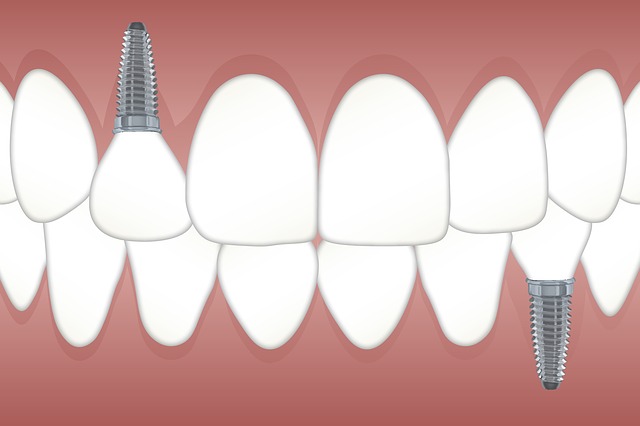Q: What are zirconia dental implants?
A: Zirconia is a type of ceramic that has widely been used in the dental field for custom implant abutments and crowns/veneers for many years and in orthopedics for various joint replacements as well. Zirconia implants exhibit high structural strength and have Yttria-stabilized tetragonal zirconia polycrystal to help increase its structural toughness and strength.
More recently, ceria-stabilized zirconia/alumina nanocomposite (NANOZR) has recently been introduced and demonstrates very high levels of flexural strength and fracture resistance, which is very suitable for dental implant loading requirements.
Due to its excellent osseointegration behavior, zirconia dental implants are becoming more widely used in dental implantology. Additionally, the inflammatory response and bone loss resulting from their use are much less than those noted with titanium implants.
Q: What are the benefits of zirconia implants compared to titanium?
A: Zirconia, as an implantable material, offers benefits of superior toughness, strength, fatigue, and corrosion resistance, making it an ideal material for dental implantation. Additionally, the significantly reduced biofilm formation on the zirconia implant surface provides a superior material for the significant reduction/nonexistence of peri-mucositis/peri-implantitis—a significant complication observed with titanium implants. Soft-tissue appearance and response are also more aesthetic with zirconia when compared to titanium.
Titanium generally causes discoloration of the thinner bands of keratinized gingiva and mucosa. Aesthetically, this can be a significant factor in the results obtained. This potential complication is nonexistent with zirconia implants.
Q: Are different surgical or prosthetic protocols required to place zirconia implants?
A: It has been the author’s observation that, from the surgical perspective, no alteration to the placement of zirconia implants is needed. There may be slight nuances with various systems, ie, the routine use of a screw tap prior to implant placement and slight complexities to managing the carrier for placement of the implant once out of the sterile vial; however, both soft-bone and hard-bone site preparation techniques are very similar to titanium.
Prosthetically, there are certain pertinent differences. Some systems require cementation of a stock abutment or a stock abutment with a central PEEK screw for additional stability to the final abutment complex. Additionally, gauging torque can be somewhat challenging with a zirconia screw for fixation of the final abutment. Carbon fiber center screws present certain challenges in obtaining torque and stability. Most zirconia systems offer closed-tray impression techniques for final impressions.
This may cause some concerns regarding the exactness of the impression obtained. Certain prosthetic tools and instruments are also different in design than the routine 0.48- or 0.50-hex driver, which may present additional challenges to the clinician. Digitally, not all systems provide scan bodies for final abutment fabrication and milling.
Q: Is the maintenance of zirconia implants similar to titanium?
A: The maintenance of titanium dental implants has always presented specific challenges to the implant dentist/hygiene team. Without proper maintenance, the incidence of peri-mucositis and peri-implantitis almost certainly occurs with resultant bone loss and peri-implant infections. It may also lead to premature loss of the dental implant complex itself. The initiation of bacterial plaque around the titanium surface is due to a plaque biofilm that forms readily on smooth/roughened titanium surfaces. This leads to the aforementioned diseases.
Zirconia implants have been shown to virtually form no biofilm on their surfaces. Also, the biologically friendly zirconia composition/surface causes no inflammatory response to the peri-implant tissue at the zirconia implant/abutment interface.
Q: Can zirconia implants be used for full-arch, All-on-x types of procedures?
A: Zirconia implants can be used in any clinical situation where titanium implants are recommended. They can be incorporated into treatment protocols from single-tooth to multiple-tooth crown and bridge-type implant procedures.
The only limitation at this point for typical All-on-4 and All-on-x-type cases is the lack of multi-unit abutments to correct for angulation/tilted implant placements.
Q: Are zirconia implants considered holistic?
A: Zirconia implants are considered “metal-free” dental implants.
Due to their non-metal, hypoallergenic composition, they are deemed to be an alternative, holistic option to traditional dental implants.
Q: Are patients requesting metal-free implants more frequently?
A: In our practice, we have seen a dramatic increase in patients seeking an alternative to traditional titanium dental implants—not only from patients preferring a total holistic approach but also from patients seeking a dental implant option that is ceramic. This is considered preferential for patients with certain metabolic disorders and those currently having peri-mucositis/peri-implantitis issues leading to premature failure with traditional titanium implants.
ABOUT THE AUTHOR
Dr. Petrungaro graduated from Loyola University Dental School in 1986 and earned his MS degree in periodontics from Northwestern University Dental School. Dr. Petrungaro is the founder and director of Implant Live. He can be reached via email at drpaul@startsmilingchicago.com or at the website implantlive.com.


